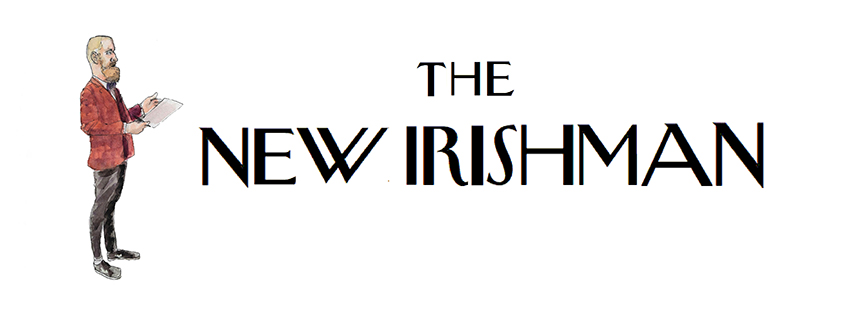"He was drawn to both Irish and English poetic traditions. He also lived through the death of the ancient rural world into which he was born and the emergence of a globalised modern Ireland. He struggled with contradictions, paradoxes, conflicting impulses.
His genius lay in his ability to hover between them, to give each side of a political or emotional equation its full weight and proper due without becoming the prisoner of either. WB Yeats, the poet whose influence he both absorbed and transcended, wrote in a time of Irish violence that “we are closed in and the key is turned/ On our uncertainty” .
Heaney humanised uncertainty, made ambiguity rich with possibilities. As he put it in the beautifully homely metaphor of Terminus:
“Two buckets were easier carried than one./I grew up in between.”"Fintan continued: "He was not, in that sense, a national poet. He knew too much about the dangers of tribalism and the foolishness of slogans to ever want to be a spokesman for the collective. He would have agreed with Yeats’s dictum that “We make out of the quarrel with others, rhetoric, but of the quarrel with ourselves, poetry.”
I wrote my take on it here. Jenny McCartney wrote a perfectly titled essay in The Spectator, 'Seamus Heaney's Poems are for Protestants too - The Poet and Northern Ireland's Great Divide.'
"Heaney was a Catholic, nationalist poet, raised on a farm in Mossbawn, County Derry. I was a teenager in a Protestant, unionist family outside Belfast. Our vision of politics softly jarred as often as it overlapped."She continued: "This sort of thing only mattered, of course, because Heaney mattered, and the business of culture — who had one, who allegedly didn’t — was used in Northern Ireland as a kind of feverish proxy war. In any case, his wider poetry could not be dismissed. People always grabbed for ‘Digging’, but I was most moved by ‘Mid-Term Break’ (reprinted on this page), about the sudden death of his younger brother when he was 14. Its final line, ‘A four foot box, a foot for every year’, could break a reader’s heart in nine plain words."
Michael H.C. McDowell wrote the following letter to The Irish Times, and also in The Spectator here, in response to the passing of Heaney:
"Well said, Jenny. My father Hamilton McDowell was a friend of your dad's and I met your dad in Washington, DC, where I live, some years ago. I also am an MCB product. I was also a very good friend of Conor Cruise O'Brien, who was a mentor at TCD, Harvard, etc. Here is my letter in The Irish Times of Monday and the Belfast Telegraph of yesterday (shortened version), paying tribute to my friend Seamus.
Sir,
Seamus Heaney crossed the sectarian divide in a still-divided Northern Ireland, or the North of Ireland, as he may have preferred. He was unashamedly nationalist but equally respectful of the unionist tradition.
He represented the pluralism and inclusion of John Hewitt and others who refused to be simply labeled, and he spurned being used by either side. Thirty four years ago, when I was 27, giving a series of lectures on the Northern conflict at Harvard, he spoke at my final class and did what he was superb at – reciting his poetry. We met several times during that 1978-1979 year when he had taken the chair of poetry.
We respected one another’s political views because we were tolerant and respectful of the “other” community which we hoped would share a common friendship in the future. Seamus was Irish first, a Northerner second. I was a Northerner first, and, equally, British and Irish. He eschewed pressure to take political stances, and rightly so. He let his poetry speak for him.
Seamus’s great encourager at his publishers, Faber & Faber, was a great Ulsterman, Charles Monteith, Fellow of All Souls at Oxford, formerly wounded in the Irish Guards, and firmly unionist but never sectarian. Other great encouragers and friends of Seamus were Conor Cruise O’Brien and his wife Maire Mac an tSaoi of whom he was fond and with whom we shared a common friendship. Seamus’s poetry had a voice representative of his own community; John Hewitt’s likewise. But there were commonalities in their poems which spanned the cultural gap.
I treasure still my rare signed and annotated copy of Seamus’s elegy to Robert Lowell, also taken from us at a too early age. I had plied him with one too many Bushmills that day in Cambridge, Mass. He wrote: “ Thanks for thehospitality, or should I say, the ‘dose’!”
Seamus was a man for all seasons. He is a loss to North and South and universally.
Sincerely,
Michael H.C. McDOWELL
3334 Stuyvesant Place, NW
Chevy Chase
Washington, D.C. 20015-2454

No comments:
Post a Comment